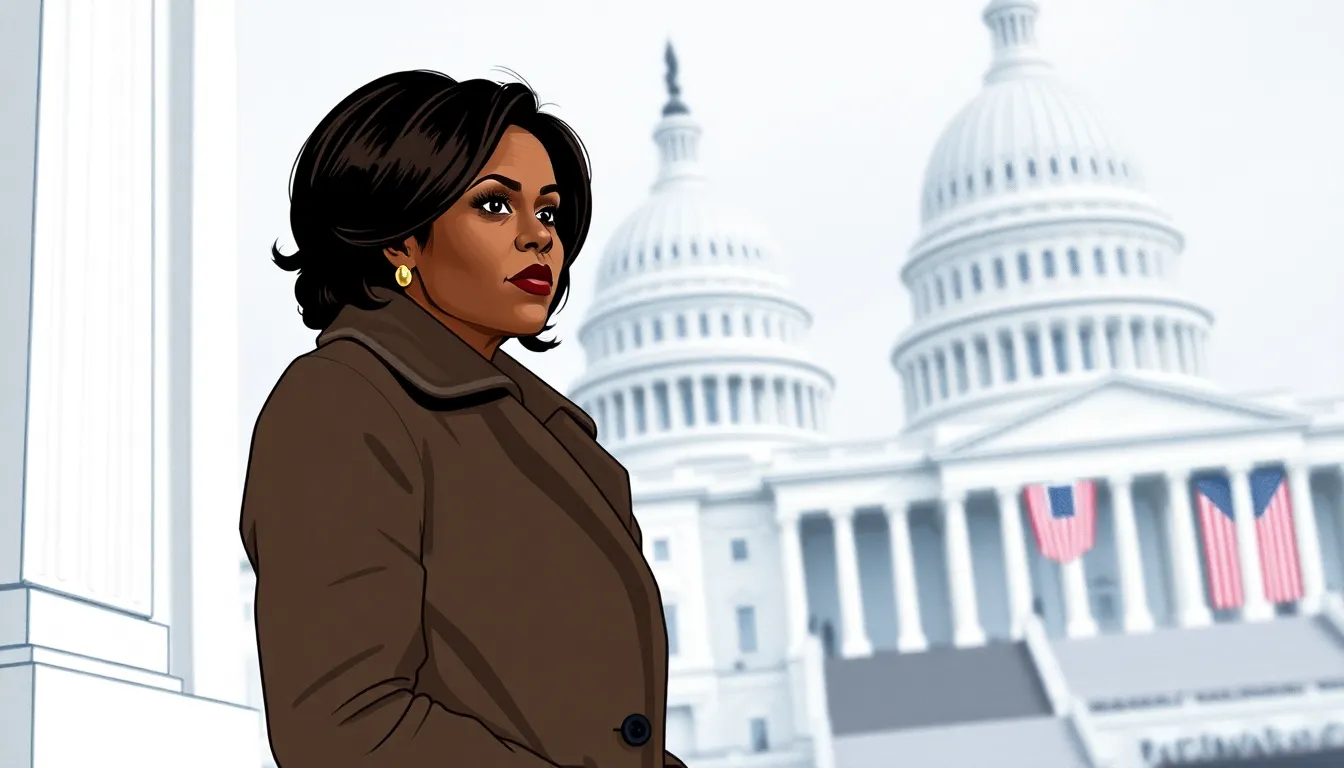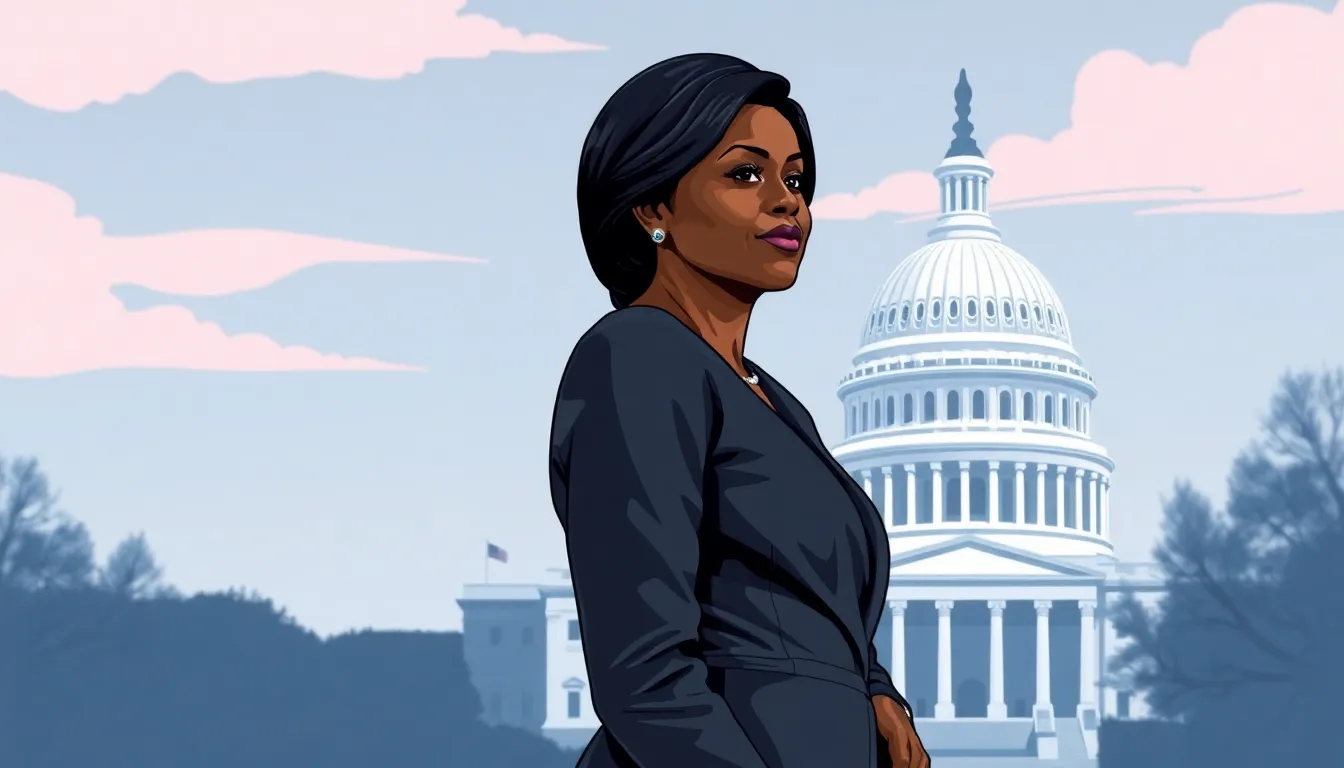As the world tuned in for the historic inauguration of Donald Trump, one notable absence sparked curiosity and conversation: Michelle Obama. With her signature grace and wit, she decided to skip the event, leaving many to wonder what could possibly keep her away from such a spectacle. After eight years in the White House, it seems she had other plans—perhaps a much-needed spa day or a Netflix binge with her favorite snacks.
This absence wasn’t just about avoiding awkward small talk; it was a statement. Michelle’s choice to miss the inauguration reflected her values and priorities, highlighting a stark contrast in political atmospheres. While some may have expected her presence, she reminded everyone that sometimes, the best way to make a point is to simply not show up. Let’s dive into the reasons behind her absence and what it means for the legacy of the Obama administration.
Table of Contents
ToggleOverview of Michelle Obama’s Decision
Michelle Obama’s choice to miss Donald Trump’s inauguration generated significant discussion. This absence represented more than a simple avoidance of tension; it signified her commitment to personal principles. Not attending an inauguration, particularly as a former First Lady, underscores the deep divides within the political landscape.
Reflecting on her priorities, Obama emphasized the importance of staying true to her values over political protocol. Non-participation in such a high-profile event speaks volumes about her stance during a time of political upheaval. Many observers interpreted her decision as a powerful statement against the incoming administration.
Citing concerns regarding the incoming policies and rhetoric, she made a stand that resonated with various groups. Opinions regarding her absence ranged from approval to criticism, highlighting the polarized nature of contemporary politics. Engaging in this discourse showcases the broader implications of her decision, extending beyond personal feelings to symbolic representations.
While her physical absence marked the day, the implications stretched further. Michelle Obama’s decision underscored significant social values and generated reflection on the legacy of the Obama administration. Her actions challenged traditional expectations of former presidents and first ladies during transitional periods. Ultimately, the choice not to attend created a ripple effect, prompting discussions about integrity, loyalty, and the evolving role of public figures in contentious political times.
Reactions to the Announcement

Michelle Obama’s absence from Donald Trump’s inauguration sparked significant public interest and discussion. Numerous reactions emerged across social media platforms and news outlets.
Public Response
Supporters praised her decision as a demonstration of integrity and conviction. Many followers admired her choice to prioritize personal values over traditional obligations. A notable segment expressed disappointment, believing her presence could have symbolized unity despite political differences. Critics, however, labeled her absence as divisive. Social media discourse reflected this polarization, with hashtags trending in favor of or against her decision. Online commentators debated the broader implications of her stance within the current political climate.
Political Implications
Her decision extended beyond personal preference, offering a symbolic rejection of the new administration. The absence illustrated the pronounced divide among political figures and citizens alike. Analysts suggested it challenged expectations for former first ladies and presidents during transitions, emphasizing a break from past norms. This non-participation also highlighted the evolving dynamics in American politics. As reactions unfolded, they illuminated public sentiment and reflected underlying tensions regarding Trump’s presidency. The conversations around her choice signaled a shift in how public figures navigate political landscapes.
Historical Context
Michelle Obama’s absence from Donald Trump’s inauguration reflects significant historical patterns. The absence of a former first lady from such a key event highlights both personal conviction and evolving political norms.
Inauguration Traditions
Traditionally, presidential inaugurations serve as a symbol of continuity and national unity. These events often include participation from both outgoing and incoming administrations, demonstrating a peaceful transition of power. Former first ladies typically attend, reinforcing this sense of unity. Michelle Obama’s choice to skip the inauguration deviated from this long-standing custom, signaling her disapproval of the new administration’s policies and rhetoric. This break with tradition emphasizes the growing disconnect between political ideals and expected behaviors.
Previous First Ladies’ Attendance
Historical attendance records of first ladies showcase a trend of unity and support regardless of political differences. For instance, Laura Bush attended Barack Obama’s inauguration in 2009, exemplifying a supportive transition. Similarly, Hillary Clinton attended George W. Bush’s inauguration in 2001. These instances highlight a collective commitment to democratic processes. Michelle Obama’s absence contrasts sharply with these precedents, highlighting a deviation from expected behavior in political decorum. Such decisions mark shifts in political culture and demonstrate how personal beliefs influence public actions during times of transition.
Michelle Obama’s Legacy
Michelle Obama’s legacy extends far beyond her absence from Donald Trump’s inauguration. Her time as First Lady saw impactful contributions that reshaped national conversations and communities.
Contributions as First Lady
Promoting healthy eating and physical activity became a cornerstone of her initiatives. The “Let’s Move!” campaign significantly influenced children’s health and nutrition across the nation. Initiatives like “Joining Forces” supported military families, fostering community among those who serve. Education also took center stage, as she launched the “Reach Higher” campaign, encouraging youth to pursue higher education. As a result, these efforts not only advanced various causes but also inspired many to engage in community service and advocacy.
Current Activism and Initiatives
Post-White House, Michelle Obama continues to champion important issues. Focusing on girls’ education globally remains a priority through her “Girl Up” initiative. In addition, her promotion of voting rights through the “When We All Vote” campaign encourages civic engagement and participation. Writing best-selling books allows her to share personal experiences and insights, further empowering individuals. Her ongoing work highlights a commitment to social justice and the importance of community involvement.
Michelle Obama’s absence from Donald Trump’s inauguration marked a significant moment in American political discourse. It wasn’t just a personal choice but a reflection of her steadfast commitment to her values. This decision resonated with many who share her concerns about the direction of the new administration.
Her non-participation challenged traditional norms and sparked a broader conversation about the role of public figures in today’s polarized environment. As she continues to advocate for important social issues, her legacy as First Lady remains influential. This absence serves as a reminder that actions often speak louder than words, particularly in times of political transition.




